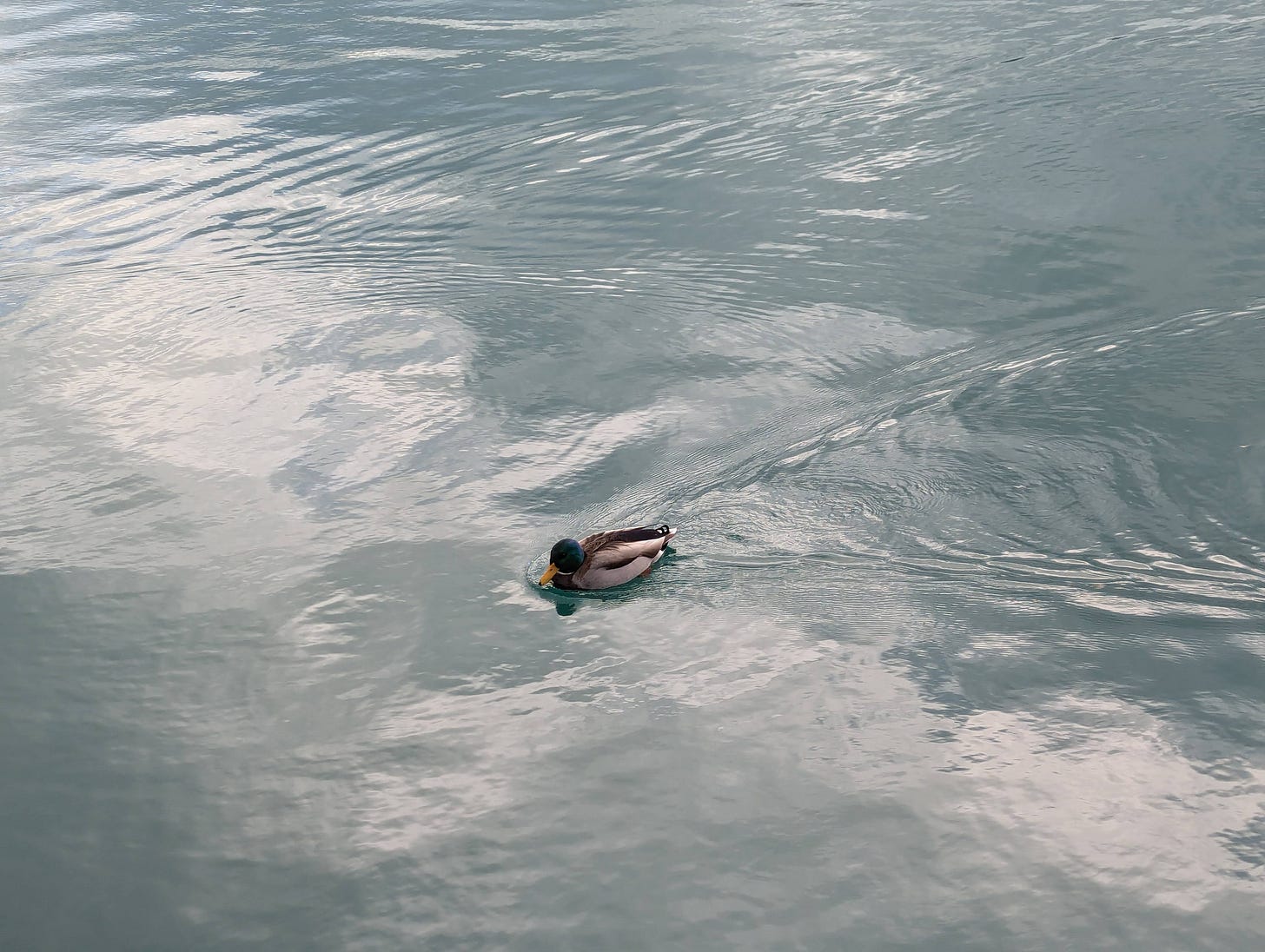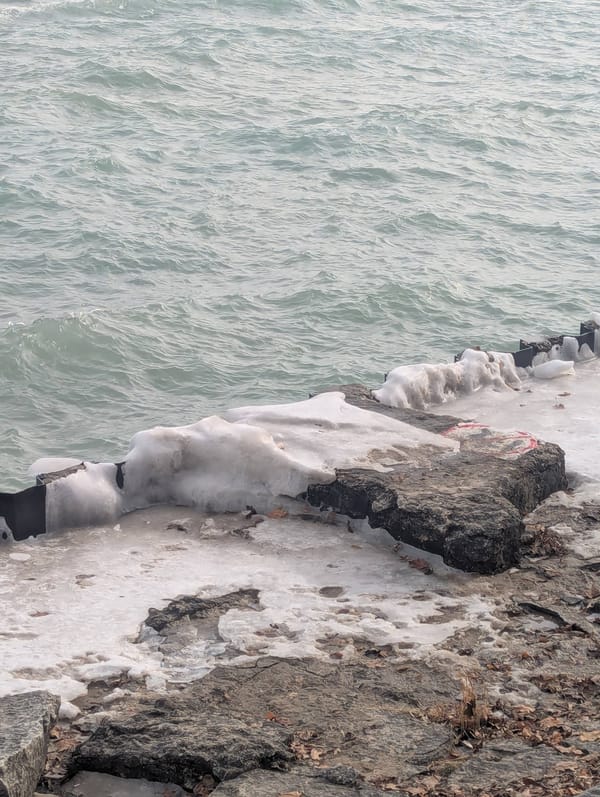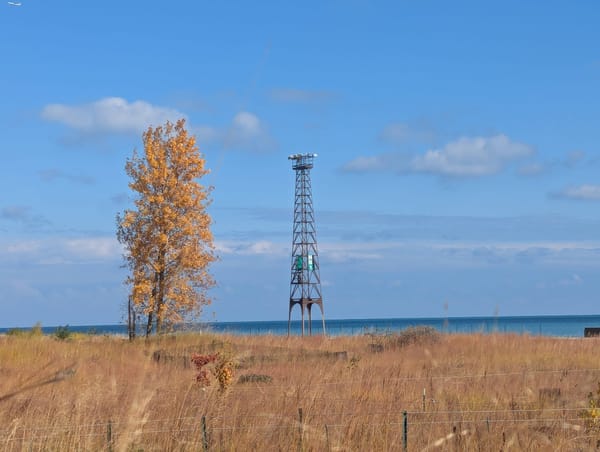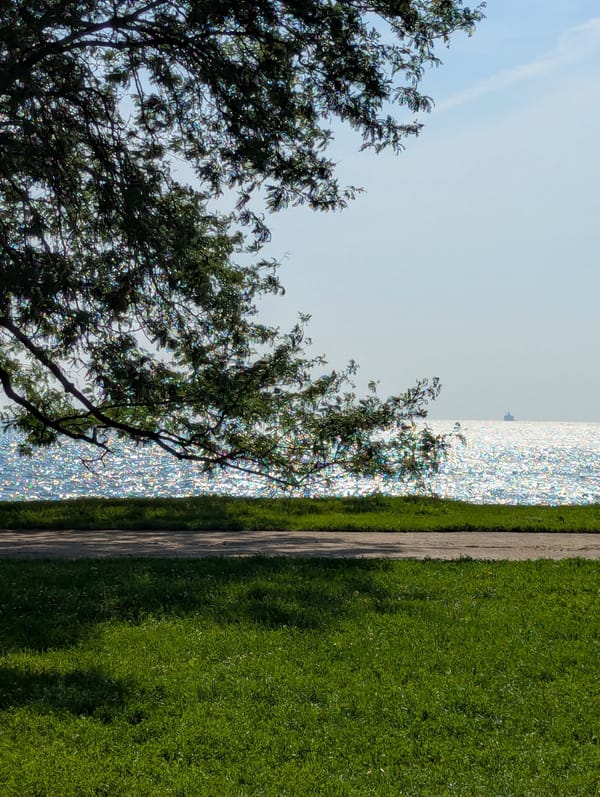a re-introduction
This is a repost of an introduction I published on my substack in February. Now I'm migrating over here to ghost – if you were subscribed there before, you're subscribed here now. If you're new, welcome! I'm so glad to have you.
I’ve had a lot of blogs over the years, but I was at my most dedicated and consistent when they were a better way to social media than social media is now. (Anyone remember Livejournal?) My IRL friends know me as someone with a lot of opinions and a big drive to talk them through, often honing them in writing. But there’s a lot of writing out there. I’m subscribed to so many newsletters. It didn’t seem valuable to add another to the mix. But that was until I started to realize how much I was getting out of reading a hundred newsletters a week, of being immersed in the working-through of ideas by lots of people I shared values with. That immersion, and repetition, is such an important part of learning. I’m thinking I could be part of it.

I have a kid in school, so I’ve spent a lot of time thinking about what effective learning looks like. Not just reading and arithmetic, of course, but also meaningful social learning. What are we learning about how to be with each other, and how are we learning it?
So this is an introduction. I’m Monica. I’m a thirty-something parent in Chicago. I’m an ambivalent psychiatrist practicing something akin to liberatory psychoanalysis in service of trauma recovery. I’m also a queer abolitionist anarchocommunist that doesn’t really believe in the institution of psychiatry. I’m a member of a big family. I’m a reader and writer. I want us to make it. It’s hard to know what to say about ourselves on the internet these days – I think many of us are beginning to see the failings of trying to “get close” across the obstacles Meta and other powers-that-be have put in our way – so I’m going to jump back into the idea of learning.
I’ve been lucky enough to have had a sort of learning renaissance in the last 4-5 years. I finished my training, and suddenly, for the first time since kindergarten, didn’t have anyone designing my curriculum for me. It was amazing what happened: I read whatever interested me when it interested me, starting 5-6 books at once and reading them at whim, skipping around as it pleased me, going down rabbit holes, following where my learning led me.
I had warily entered medical school, then warily entered psychiatry residency training, funneled again and again to positions of supposed care and service. I’d always felt at-odds in the world as it’s currently constructed, and deeply interested in figuring out how we might heal from trauma and construct a world that felt better for everyone. I was deeply distrustful of medicine and healthcare, which I came by honestly. I was even more distrustful of psychiatry – which I also came by honestly – and I couldn’t understand how locking people up was going to help, especially when the only alternative treatment we ever offered was mildly or moderately effective medication and short-term therapy. I cared most to help the people that had been deeply traumatized or deeply abandoned by our institutions (because I knew them, in some ways am them) – so you can see why I was dubious about the likelihood that medication, short-term therapy, or incarceration were likely to make a meaningful impact. I entered training ready to either be proven wrong, or to find the people who were doing what would work. My instinct was that it would be intense, long-term, loving relationship – in the context, of course, of having one’s basic needs attended to.
I’ll spare you all the details, but nobody ever proved me wrong, and training was incredibly demoralizing. (Not to mention it was in charge of my “education”.) Psychiatrists embedded in the institution and limited by its edicts and imagination fended off discussion of the harm they participated in, didn’t look for the missing positive impact they were said to be making, or acknowledged these things but pressed on anyway. When I finally found the people doing long-term, intense, relational therapy (psychoanalysis!), I discovered that their institutions were designed for people uplifted by capitalism. Psychoanalysis mostly further psychologically oppressed the others.
Judith Herman, a psychiatrist and sage who wrote in her book Trauma & Recovery in 1992 of society’s habit of remembering and forgetting about trauma, discussed how our culture at large maps itself onto dynamics between perpetrators of abuse, their victims, and bystanders. She described how an institution and society that perpetrates abuse on one hand is unlikely to respond well when you try to intervene with the other. She said, “To hold traumatic reality in consciousness requires a social context that affirms and protects the victim and that joins victim and witness in a common alliance.” I read her book (Trauma and Recovery) in my last year of training, and started to understand that if I was going to care about traumatized and abandoned people, I was going to have trouble doing it as part of the mainstream institution of psychiatry. The ones attending to the people on the margins were on the margins, too.
And attending to trauma and its recovery wasn’t going to happen “[w]ithout the context of a political movement.” (Dr. Herman again.) I’m glad I found abolition.
And I really found it. I read book after book, listened to podcasts, followed blogs and social media accounts of prominent organizers, and immersed myself in a world I hadn’t been exposed to before, but which felt so so good. Angela Y. Davis, Mariame Kaba, James Baldwin, adrienne maree brown, and many others taught me a whole lot that year. It all made so much sense. The dots were connecting between my instincts about what people needed, what could work to prevent harm, what we had never even tried. And most of all, I found a way to understand the world so that the words I had heard all my life – that life is precious – actually meant something. To make them true.
When I realized this, learning abolition felt like walking into a way of being I’d always known.
So how is it that we actually learn something? How do we understand something foreign, how do we hone a new skill, how do we make sense of things?
If it’s reading, for example, and we’re young kids in school: You learn the sounds of the letters. You learn how to blend and unblend the sounds, how to decode words, how to recognize certain patterns. You learn the exceptions. You memorize a few common and tough ones. And then you practice, a lot.
And when you’re sitting with your caregivers on the couch, impatient, and guessing – you get some gentle encouragement to slow down and sound it out, to believe in your capabilities, to avoid shortcuts and learn how to really do it rather than pretend to be doing it. You’re told that this time and attention is the path towards really learning it well.
This is how we learn to read, and it’s how we learn other things too.

As a therapist, a lot of my job is telling, but mostly showing, people that I believe they deserve respect and dignity, no matter what, just because they’re alive. It takes a long time for most people to understand that I really mean it, to consider they could believe it themselves. We work through and disentangle and uncover all the ways the opposite belief has shown up in their lives. We think we’ve got it – of course we believe in inherent worth! – and then discover all the ways we were just lending it lip service. We keep going, try trying again.
This idea – that life is precious, that everyone is inherently worthy of life, respect, and dignity – is a difficult concept to learn in our current cultural context. But when I found abolition, I found a community of thinkers and doers that really were trying to live it out. I’ve learned a lot, including that centrality of relationships and relating to whether we can enact worth and care. And about how a political movement that is successful in achieving what we want (like defeating capitalism and keeping the earth survivable) depends on us really meaning what we say when we talk about valuing life and each other.
So that’s a little about me. I’d like to keep thinking and writing about how it is we can learn to really mean what we say. I’m doing this in my private life, and I’m a little wary about doing it publicly. But I also know that we have to start figuring this out, and on larger scales. Not enormous ones – I believe that will flow from the steps before. But we have to figure it out interpersonally, and then we have to figure it out socially, in our circles of friends and families and neighborhoods. How can we learn how to slow down enough to actually enact care for each other, to actually end cycles of harm and abuse and oppression, rather than just paying it lip service? Rather than just doing what we think is right, by rote, by context clues and guessing? I’ve had a lot of experience in groups where the latter things happen.
This is a weird time to be talking about the near(ish) past rather than the present. Some people are calling the US coup coup’d at this point (Vicky Osterweil spoke eloquently), and I know that’s most of what we’re talking about. But I think this is exactly the time for us to really dig into how it is we learn to do something radically different. If we don't figure it out soon, we might not make it. I think we could, though. We have a lot to learn, but we’ve learned hard things before. And I think that in some ways, it’ll feel like walking into a way of being we’ve always known.


